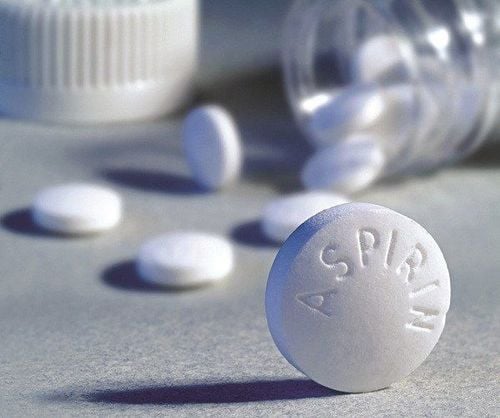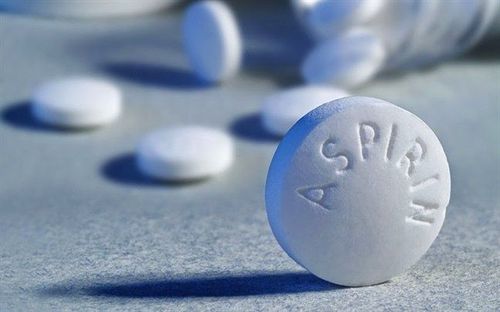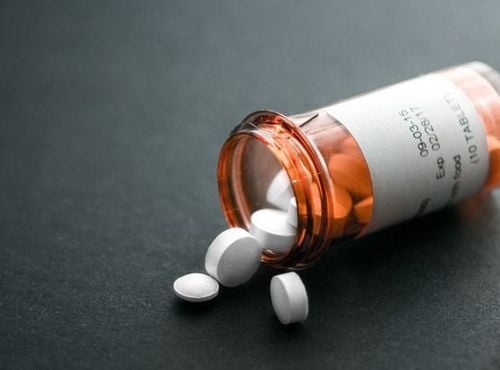This is an automatically translated article.
Daily aspirin is an effective preventative measure for people who already have a history of heart attack. This is also seen as a lifesaver in many cases, but not for everyone. Learn about the benefits and risks of aspirin before taking it continuously.
1. Overview
If a patient has had a heart attack or stroke, the doctor will probably recommend daily aspirin unless the patient has a history of severe drug allergies or a history of bleeding. If a patient is at high risk for a heart attack at any time, the doctor will likely recommend aspirin after weighing the risks and benefits.
The occasional use of 1 or 2 aspirin tablets is safe for the most part, and works for headaches, body aches, or fevers. But taking aspirin daily can cause serious side effects, including internal bleeding.
Aspirin will interfere with your blood clotting. When you bleed, cells that help blood to clot, called platelets, build up at the site of your wound, forming a plug that seals the opening in your blood vessel to help stop the bleeding.
But this clotting can also occur in the vessels that supply blood to the heart. If your blood vessels are narrowed due to atherosclerosis (caused by fatty deposits in your arteries), fat deposited in the lining of your blood vessels can break off and form a blood clot. Blood clots block an artery, obstructing blood flow to the heart, causing a heart attack. Taking aspirin daily can reduce the build-up of platelets and prevent heart attacks.
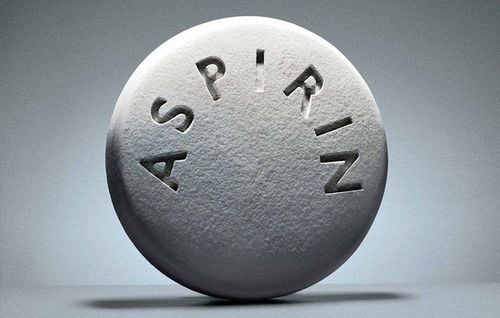
Aspirin là thuốc đem lại nhiều lợi ích cho việc điều trị bệnh về tim
2. In case of indication to use Aspirin
The doctor may prescribe the patient to take aspirin daily if:
The person has had a history of heart attack or stroke. People who have not had a heart attack, but have had a coronary stent, have had coronary bypass surgery, or have chest pain due to coronary artery disease (angina). People who have never had a heart attack but are at high risk. People with diabetes who have at least 1 other heart disease risk factor such as smoking or high blood pressure and are a man over 50 or a woman over 60. Doctors recommend daily aspirin for patients aged 50-59 years, who are not at risk of bleeding, and for patients who are at high risk of heart attack or stroke in the next 10 years. If you're 60-69 years old, don't have a bleeding risk, and have a 10% or higher risk of heart attack or stroke over the next 10 years, talk to your doctor about daily aspirin therapy.
Doctors do not recommend aspirin therapy to prevent heart attacks in people who have never had a heart attack, stroke, or other cardiovascular disease. The higher the heart attack risk, the greater the benefits of daily aspirin therapy outweigh the bleeding risks.
MORE: Indications and possible side effects of Aspirin
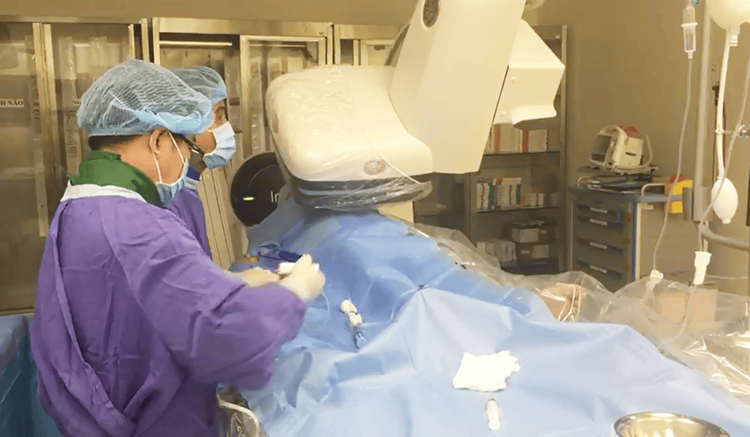
Người đã đặt stent động mạch vành được chỉ định sử dụng thuốc Aspirin
3. Side effects when taking daily aspirin
Taking daily aspirin can lead to a number of side effects and complications such as:
Stroke due to rupture of blood vessels: Although taking aspirin daily can help prevent stroke related to blood clots, the opposite is true. may increase the risk of a bleeding stroke (hemorrhagic stroke). Stomach bleeding: Taking aspirin daily increases the risk of stomach ulcers. And if the person has a stomach ulcer or bleeding anywhere in the digestive tract, taking aspirin will make the condition worse, even life-threatening. Allergies: If you are allergic to aspirin, taking any amount of aspirin can cause serious allergic reactions.

Xuất huyết dạ dày là một triêu chứng nguy hiểm của thuốc aspirin
4. Note when using daily aspirin
Before starting daily aspirin, if you have a condition that may increase your risk of bleeding or other complications, let your doctor know. Conditions include:
Blood clotting or bleeding disorders; aspirin allergy, which may include aspirin-induced asthma; Bleeding from stomach ulcers. If you are taking daily aspirin and want to have a procedure, surgery, or dental work, tell your doctor about aspirin use and dosage. Otherwise you run the risk of excessive bleeding during surgery. However, you should not stop taking aspirin on your own without talking to your doctor.
Depending on each case, the doctor will prescribe a suitable prescription for each patient. The lowest dose of aspirin is between 71-150 milligrams (mg), the most commonly used and effective dose is 81mg. Your doctor may prescribe a daily dose from 75mg (lowest dose) to 325mg (high strength pill). For patients who have had a heart attack or had a heart stent placed, taking aspirin with any other blood thinners is recommended.
People who regularly take aspirin and drink alcohol may have an increased risk of stomach bleeding. Consider drinking in moderation or in moderation if possible. For women of all ages and men over the age of 5, it should be limited to a maximum of 1 drink per day. For men aged 65 and under, limit to a maximum of 2 drinks per day.
Discontinuing daily aspirin therapy may cause an increased risk of heart attack as a side effect. If you have ever had a heart attack or had a stent placed in one or more of your heart arteries, stopping daily aspirin can lead to life-threatening heart attacks.
If you are taking your daily Aspirin and want to stop, talk to your doctor before making any changes. Abruptly stopping daily aspirin therapy can have the side effect of forming blood clots.
Although it is a fairly popular anti-inflammatory pain reliever on the market like Aspirin, there are still many side effects to be aware of when using. The recommendations or warnings for aspirin use are still being researched, supplemented and perfected so that users can be safer when taking the drug.
Please dial HOTLINE for more information or register for an appointment HERE. Download MyVinmec app to make appointments faster and to manage your bookings easily.
References: mayoclinic.org, healthline.com




